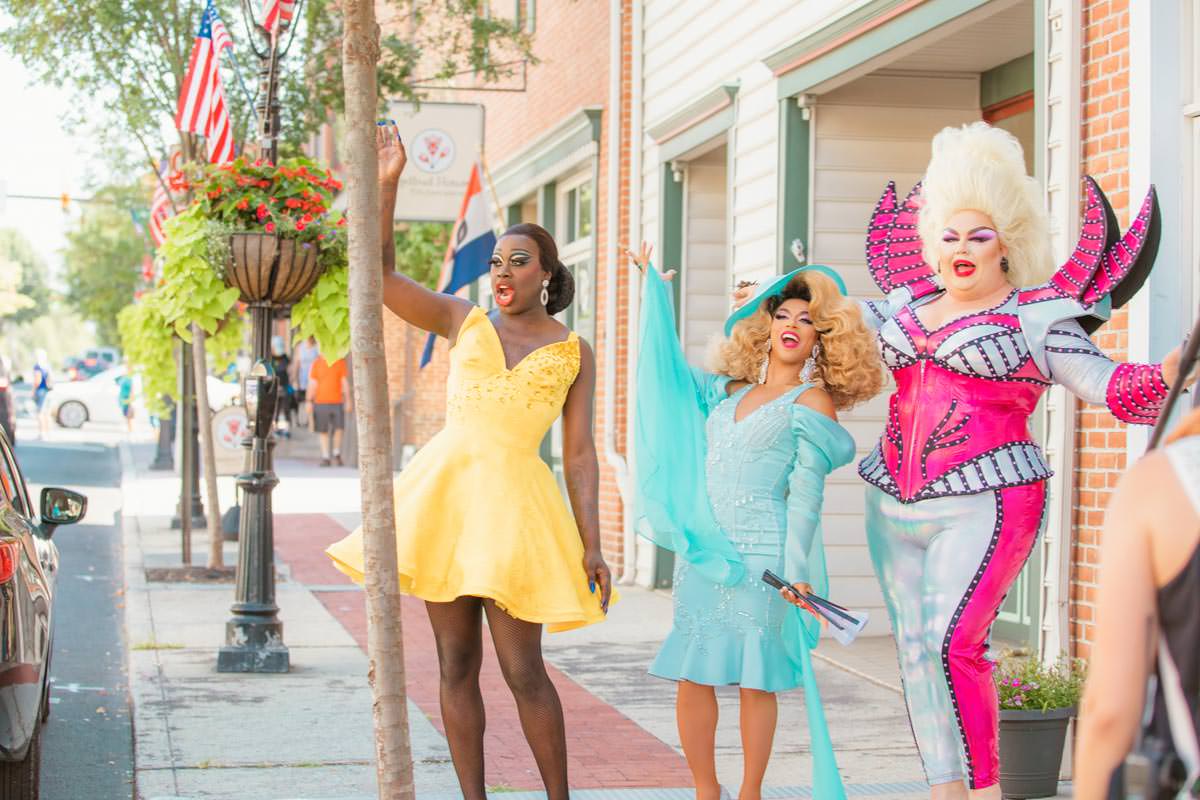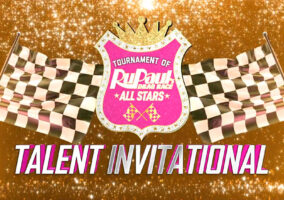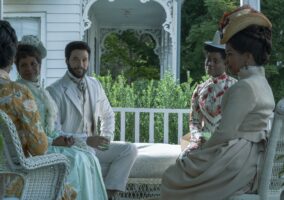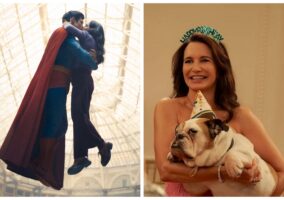
We fully admit that our initial reaction to this show may have included some eyerolls. It wasn’t the cast that produced the reaction. We love Shangela, Bob the Drag Queen and Eureka and always have, ever since we were first introduced to each of them on RuPaul’s Drag Race. No, it was the premise that had us rolling our eyes.
One of the questions that came up with some frequency on our book tour was “What’s going to be the next big cultural moment for drag?” And we noted a few times, with some disappointment, that it was likely to be some sort of reality show where drag queens make over straight people or come into straight communities to make their lives better somehow. There’s a bit of a tradition in mainstream culture of the “magical drag queen.” You saw it in old films like To Wong Foo, or The Adventures of Priscilla, Queen of the Desert; this idea that drag queens are magical creatures who come into dreary heterosexual lives, sprinkle some glitter, and make everything better. Even Drag Race utilized this trope with its once-a-season family makeover challenges. It’s an idea with a lot of appeal for the mainstream but it tends (much like the “magical negro” trope) to reduce queer people and drag queens specifically to selfless helpers without lives or ambitions of their own. It also reinforces the trope that gay people are naturally fabulous and straight people tragically not.
And to be fair, having watched the episode, that aspect is there. Bob, Shangela and Eureka pull their big, draggy caravan into Gettysburg, Pennsylvania and the entire episode repeatedly returns to the idea that small-town life is not a good place for gay people – especially flamboyantly, over-the-top gay people. The show forces all three queens to interact with the locals; in many cases, by simply getting a bit in their faces. As actual, you know, gay people, we found these parts of the show to be just a little stressful to watch.
But We’re Here is clearly a show with a lot of heart that wants to make you feel good and despite the stress of the setting or the potential staleness of the concept, it manages that quite nicely. Each queen is set up with a member of the town who has agreed to let themselves be made over and trained as a drag queen, with the climax of the episode being an actual full-on drag show, put on by the three professionals (all of whom are very, very good at what they do) and their three amateur charges. The show triumphs because of two factors: the three queens themselves and the type of people they’re making over. Bob gets set up with a straight (but very game) black man who wants to stand for queer people, knowing how hard it is to be different in a small town. Shangela gets set up with a young gay man who lives with his supportive but befuddled parents and who clearly has a strong desire to do drag. Eureka, in the most poignant story, is set up with a woman who ostracized her queer daughter when she informed her she was going to hell and now wants to prove to her that she’s learned and changed her mind. We won’t give away any of the ends of these storylines, but trust: tears were shed.
Sure, it’s manipulative as hell. It’s a reality show, after all. But there’s good reality TV and there’s bad reality TV and this charming, heartwarming, funny and entertaining show definitely falls into the former category. It’s good reality television; beautifully produced, extremely well cast, with the ability to spin out unforgettable stories in the space of an hour. And at this time of stress, anxiety, and a dire lack of socialization, it may just be exactly what you need.
Pop Style Opinionfest: The Final Call on “Making the Cut” Next Post:
RuPaul’s Drag Race: Choices 2020
Please review our Community Guidelines before posting a comment. Thank you!



